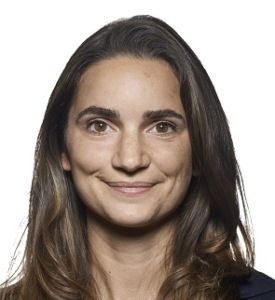Opinion
Economics Explained: What quantitative easing is and why the ECB implemented it
Martina Facino
This article is more than 7 years old.

Central bank is quite the towering influence (photo: Pixabay)
Quantitative easing (QE) is the purchase of financial assets by a central bank. The central bank buys large amounts of financial assets, for example government bonds, from commercial banks and other financial institutions.
By doing so, the central bank injects money into the economy that was not there before. Consequently, two things happen: there is more money in circulation in the economy, and interest rates decrease. The first effect is also the cause of the second.
Why implement QE?
Increased liquidity and decreased interest rates are exactly the reasons why a central bank implements quantitative easing. More money in the economy lowers the interest rate (remember: interest rate is the price of money. Anything in high supply has a lower price).
A lower interest rate means it is cheaper for consumers, companies and the government to get access to capital, for example by obtaining a loan from the bank. This translates into more spending, which makes the economy move.
A central bank can implement QE during a recession to stimulate the economy by increasing spending.
What are the drawbacks?
The main risk of QE is that too much money enters into circulation in the economy, thus resulting in high inflation. In simple words, the currency loses its value (more supply translates into lower value. Why are tomatoes cheaper than avocados?). An additional consequence of this is that people lose confidence in the economy.
Another risk is that the ‘new money’ ends up in savings instead of being used in the economy, lowering the effectiveness of the QE program.
ECB’s QE program
In recent years, the European Central Bank (ECB) has implemented a quantitative easing program across the Eurozone to help countries come out of recession. The ECB purchased mainly government bonds with the objective of reducing governments’ borrowing costs, thus incentivising spending across the Eurozone.
The ECB started the QE program after the 2008 financial crisis, and it plans to terminate it at the end of 2018, after purchasing bonds for 2.6 trillion euros.
While Mario Draghi, ECB’s president, is confident that the Eurozone economy can continue to grow without the QE program, others have concerns over a possible slowdown.

About
Martina Facino
Martina Facino works for a leading consultancy firm where she specialises in competition economics and maintains a strong interest in macroeconomics. Using her master’s in economics and finance, she intends to focus on explaining macroeconomic concepts and describing them in the current context










































